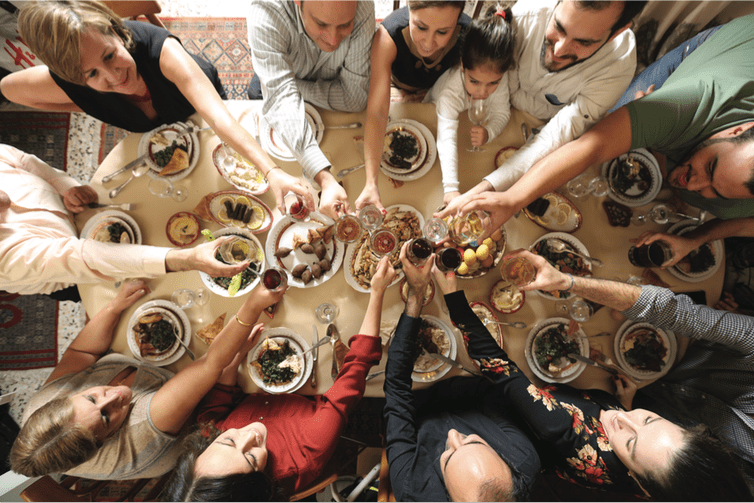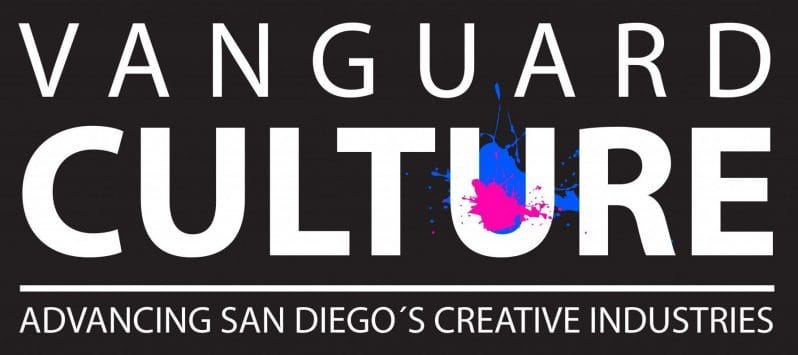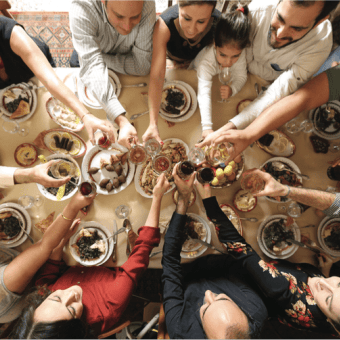April 5, 2019
Article by Rebecca Romani

Very little tends to come through U.S. screening venues when it comes to films from the Middle East and North Africa (MENA). At best, a Lebanese film here or there and a handful of Iranian films by a director with a familiar name- such as Jafar Panahi. It’s a shame because post-Arab Spring, the films coming out of the MENA have upped their game with daring stories, high production values, and acting that rivals almost anything coming out of Hollywood these days.
This year, the San Diego Arab Film Festival (SDAFF), one of the newer kids on the festival black in San Diego, comes out swinging with a new look and a stellar line-up that both echoes the production value coming out of the MENA, and carries an almost prescient relevance to recent events in the region.
According to co-founder and co-committee chair Larry Christian, the festival has been moved to Spring in order to give it some breathing room. Formerly, the festival was in the Fall, sandwiched between the San Diego Italian Film Festival and the San Diego Asian Film Festival, both established festivals with a strong following.
By moving the festival, Christian said, the SDAFF hopes to attract a diverse audience and to take advantage of more access to venues.
In addition, the festival has taken a new approach to programming. In the past, films have been chosen, in part, from the selections of the parent festival, the San Francisco Arab Film Festival, the oldest such film festival in the US. This year, according to Christian, the San Diego festival decided to strike out on their own, soliciting submissions through open calls and film submission sites. The calls produced mostly shorts, said Christian, so the screening committee actively sought out features, eventually finding 42 to choose from.
“We were really interested in a breadth of (films) from countries,” said Christian, adding” I am really excited about the list.”
As well he should be.
The list includes nine features from across North Africa, Jordan, and the UAE as well as Yemen.
This year’s screenings are especially relevant, given the events throughout the region.
Yemen contributes the opening film, “10 Days Before The Wedding,” – impeccable timing as the US Senate has recently voted to withdraw US participation in the conflict there between the Iranian-assisted Houthi government and the Saudi coalition. Continuing strikes and bombing runs have destroyed much of the country’s infrastructure and internally displaced much of the population. The situation in Yemen has been called one of the worst humanitarian crisis in a century still young yet so marked by humanitarian problems.
Amr Gamal’s film, “10 Days” positions a traditional wedding as a metaphor for Yemen’s problems. The film is set in Aden, one of Yemen’s largest cities, after the Battle for Aden, which saw massive bombings destroy and damage large sections of the city. In the film, the aftermath of the battle nearly destroys Rasha (Sally Hamada ) and Ma’moon’s (Khaled Hamdan) hopes of ever getting married. It has been three years since the last time they tried, only to have their ceremony overtaken by the war. However, the couple now faces another, almost more serious obstacle. Saleem (Mh’d Nagi Break), Rasha’s family’s landlord, threatens to evict her family unless they call off the wedding to Ma’moon, and let her marry Saleem.
How the couple works this out is both classic Arab film and a fresh look at life in a country nearly destroyed by conflict.
Gamal’s film is all the more unusual for having been made. With cinemas destroyed by the conflict and life lived on the edge of disaster, Yemen has not been much of a presence in Arab film. That changed, however, with Sara Ishaq’s short documentary, “Karama Has No Walls,” about the conflict. Her film was nominated for Best Oscar Short Documentary in 2014. Another film, “I am Nojoom, Aged 10 and Divorced,” was submitted as Yemen’s feature submission for Best Foreign Film for the Oscars in 2014.
Since then, Ishaq and others have been overseeing training of young Yemeni film talent, leading workshops and screenings, despite the considerable difficulties working in Yemen presents.
Gamal, an experienced theatre director and writer, started work on “10 Days, “ in early 2018. His first feature film, the film was also the first film to be commercially shown in Aden for almost a decade.
This film screens at the Museum of Photographic Arts.
The first weekend of the festival continues at the MOPA with two very ambitious and beautifully shot films. The first, from Lebanon, “ Heaven Without People” is the debut feature film from Lebanese theatre director, Lucien Bourjeily. Bourjeily turns to his theatre experience to create an intimate look at the inner workings of a Christian Lebanese family who all sit down for lunch together for the first time in years. For matriarch, Josephine, this is a dream come true, until somebody steals her savings, and then lunch becomes a whodunit.
Bourjeily uses non-actors and amateur actors to produce a film that feels very real and yet delves deeply into many of the issues affecting Lebanese society today, including social expectations, religious division, and the trauma that comes with cycles of national violence.
“Heaven Without People” has been censored in Lebanon, like several of Bourjeily’s more controversial plays. Expect to see the whole thing, lunch, resentments, and all, on Saturday.
Also screening Saturday is Azlarabe Alaoui’s stunning new film, “Kilikis…the Town of Owls.” Set in a remote village in the High Atlas mountains in Morocco, Alaoui’s new film looks at the impact a secret government prison has on the local population and those who must guard the prisoners.
Alaoui’s film has been sweeping festivals with its indirect look at one of Morocco’s most notorious prisons, Tazmamart. The prison has been described as the place where the late Moroccan King, Hassan II, would put political prisoners and forget about them. Active during the “Years of Lead,” some of the most repressive years of the late king’s reign, Tazmamart was first denied by the Moroccan government and then dismantled and destroyed in 1991. Although Alaoui does not reference the prison directly, it’s hard not to think of the place where people were literally buried alive for being suspected t have been involved in a coup against the palace or for other political reasons.
Alaoui’s choice to focus on the town and those who work at the prison at first glance seems an odd choice, but little by little, it becomes apparent that Alaoui has created a film that transcends a specific time and place to create question about who and what is imprisoned when societies take punitive, often capricious measures against their citizens.
The San Diego Arab Film Festival switches to Mission Valley, April 13-14, with shorts and more feature films. For information about tickets and show times, please see http://sandiegoaff.org.



